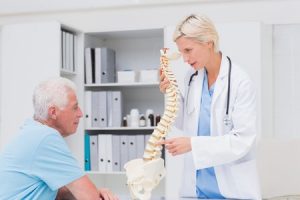Have you felt like your increasing age is taking a toll on you? As men increase in age, their normal hormone levels decrease and result in different types of male hormone imbalances. One of which is andropause or “male menopause” – a decline in a man’s levels of testosterone, their primary male sex hormone.
A gradual but significant decline in a man’s testosterone begins at age 30 at a rate of 1 to 2% per year. By about age 70, a man’s testosterone levels may have declined by 50%. Because testosterone plays a huge role in a man’s overall health, low T levels may produce different adverse effects.
Andropause and senior health
Here are the most common symptoms and changes you can expect from andropause in your senior years:
- Sleep disturbances: Sleeping difficulties or disturbances in andropause men include insomnia, sleep apnea, night sweats, and restless leg syndrome (RLS).
- Emotional changes: Different changes in emotions during andropause often result to a lack of motivation, depression, forgetfulness, and lack of concentration.
- Sexual dysfunction: During andropause, a man’s sexual function also weakens and lays low, which may result in low sex drive, infertility, and erectile dysfunction.
- Osteoporosis: With declining testosterone levels, men become more susceptible to osteoporosis. Low levels of testosterone lead to loss of bone tissue and mass.
- Physical changes: Other physical manifestations of andropause in men include increased abdominal fat, decreased muscle mass, hair loss, and swollen breasts.
Dealing with andropause
Although andropause can’t be escaped, it can be managed. Men can deal with the different symptoms and risks brought about by andropause with these simple steps:
- Weight management: Stored extra fat, especially in the belly, can convert testosterone to estradiol. Healthier lifestyle choices such as proper diet and regular exercise are greatly recommended.
- Physical activity: Engaging in physical activities can help alleviate unpleasant symptoms of andropause, such as mood swings and sleeping difficulties, while helping manage your weight.
- Proper nutrition: Practice eating healthier food choices including fiber-rich foods, omega-3 fatty acids, lean meat, and fruits and vegetables for overall health, increased energy, and strength.
- Getting checked for depression: Depression is one of the symptoms of andropause that you should keep an eye on. Beware of signs of depression or have your primary care provider screen you for possible depression.
- Expert consultation: The best way to deal with andropause is through an expert doctor’s help. Be honest about your symptoms for proper diagnosis and treatment. For some, testosterone replacement therapy can be given as an effective treatment.
Get equipped and be ready for the andropause battle!

